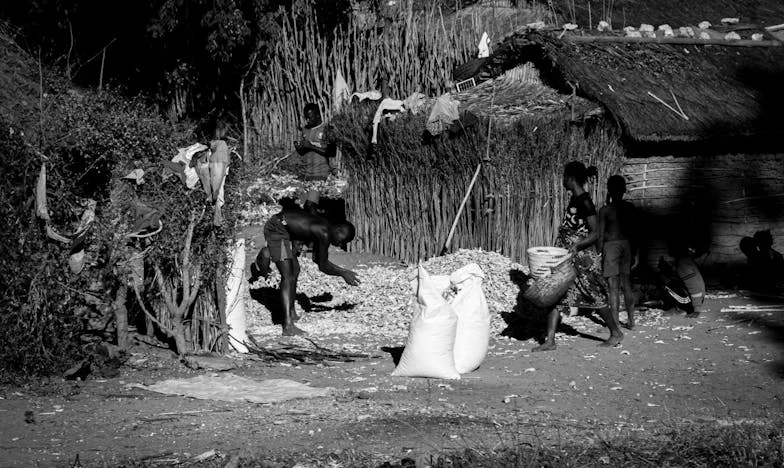Shattered Dreams, New Beginnings: Olivia’s Journey to Herself
“Olivia, this is it. I—I want a real family. I want kids. You can’t give me that. I’m filing for divorce.”
His voice was cold, almost rehearsed, as if he’d practiced these lines in the mirror. My world narrowed to a pinpoint of pain. The kitchen clock ticked. My mug slipped from my hand and shattered on the tile, the sound echoing in the silence he left behind. I stood there, numb, as Mark grabbed his suitcase and walked out. Just like that, twelve years together—gone, swept away with a single sentence and the slam of the front door.
I pressed my forehead to the fridge, trying to breathe. “Three days,” he’d said. “You have three days to pack. Call me when you’re gone. I’ll be at my mom’s until I can move in with… the mother of my child.”
He didn’t even try to hide it. He’d found someone else, someone who could give him the family I never could. The diagnosis had come a year ago: idiopathic infertility. We tried everything—specialists, IVF, even adoption, but nothing worked. I thought we were in it together. I thought love was stronger. I was wrong.
The first day after Mark left, I barely moved. I sat on the living room floor, surrounded by photo albums and the ghosts of laughter. I replayed our fights, the hospital visits, the endless hope and crushing disappointment. I wondered if I’d ever meant anything to him, or if he’d just been waiting for an excuse to leave. My hands trembled as I dialed my mom’s number. Her voice was cautious, knowing. “Do you need me to come?” she asked. I swallowed, the lump in my throat threatening to suffocate me. “No, Mom. I just… I just needed to hear your voice.”
Packing was agony. Every piece of clothing, every dish, every framed picture was a reminder of what I’d lost. I found the onesie we’d bought on a hopeful day in March, hidden at the back of my dresser. I clutched it to my chest and sobbed until I thought I would break apart.
On the third day, as the moving van idled in the driveway, Mark’s mother pulled up. She stepped out, arms folded tight across her chest. She didn’t say a word, just glared as I loaded the last box. I wanted to scream at her—at all the pitying looks, the whispered judgments. Instead, I closed the door to the only home I’d ever known and drove away.
I moved into a tiny apartment above a bakery in downtown Columbus, Ohio. The walls were thin, and the scent of cinnamon rolls seeped through the floorboards every morning. I cried myself to sleep for weeks. I stopped answering friends’ calls. They didn’t know what to say, and neither did I. I lost my appetite, my job performance slipped, and I started seeing a therapist named Dr. Carter, who reminded me that grief has no timeline.
One rainy Thursday, the bakery owner, Mrs. Greene, knocked on my door. “Sweetheart, you look like you could use a friend. Come downstairs, have a coffee on the house.” For the first time in months, I let myself be seen. Over scones and steaming mugs, I told her my story. She squeezed my hand. “You’re stronger than you think, honey. Sometimes life pulls the rug out from under us so we can learn how to stand on our own two feet.”
Slowly, I forced myself back into the world. I joined a book club. I volunteered at the animal shelter. I reconnected with my sister, Emily, who had drifted away during my marriage. At Thanksgiving, my family circled around me, awkward but loving. I watched my nieces fight over pumpkin pie and felt the ache of what I’d lost, but also a sliver of peace.
One night, Mark called. I hesitated, then answered. His voice was tired. “Olivia, I just wanted you to know… she’s pregnant. We’re getting married. I’m sorry for how I ended things.”
I waited for the old pain, but it didn’t come. Instead, I felt a strange, bittersweet relief. “I hope you find what you’re looking for, Mark. I really do.”
As winter melted into spring, I started to dream again. Not of babies or white picket fences, but of art classes and road trips and laughter with friends. I realized that my worth wasn’t tied to my ability to create life. I could create happiness. I could build something new.
One evening, Mrs. Greene invited me to her granddaughter’s piano recital. I sat in the back, surrounded by proud parents, and didn’t flinch at the sight of families. I clapped and smiled. I let myself feel joy. And on the walk home, under the amber streetlights, I whispered, “I’m still here. I survived.”
Sometimes I pass by my old house, now with toys in the yard and curtains I don’t recognize. I wonder if Mark ever thinks of me, or if the woman inside knows how many tears were shed in those rooms. But I don’t linger. My life is forward now, not back.
Is happiness something you find, or something you make? Can a broken heart ever be whole again? Maybe you have to lose everything to discover who you really are. What do you think?
